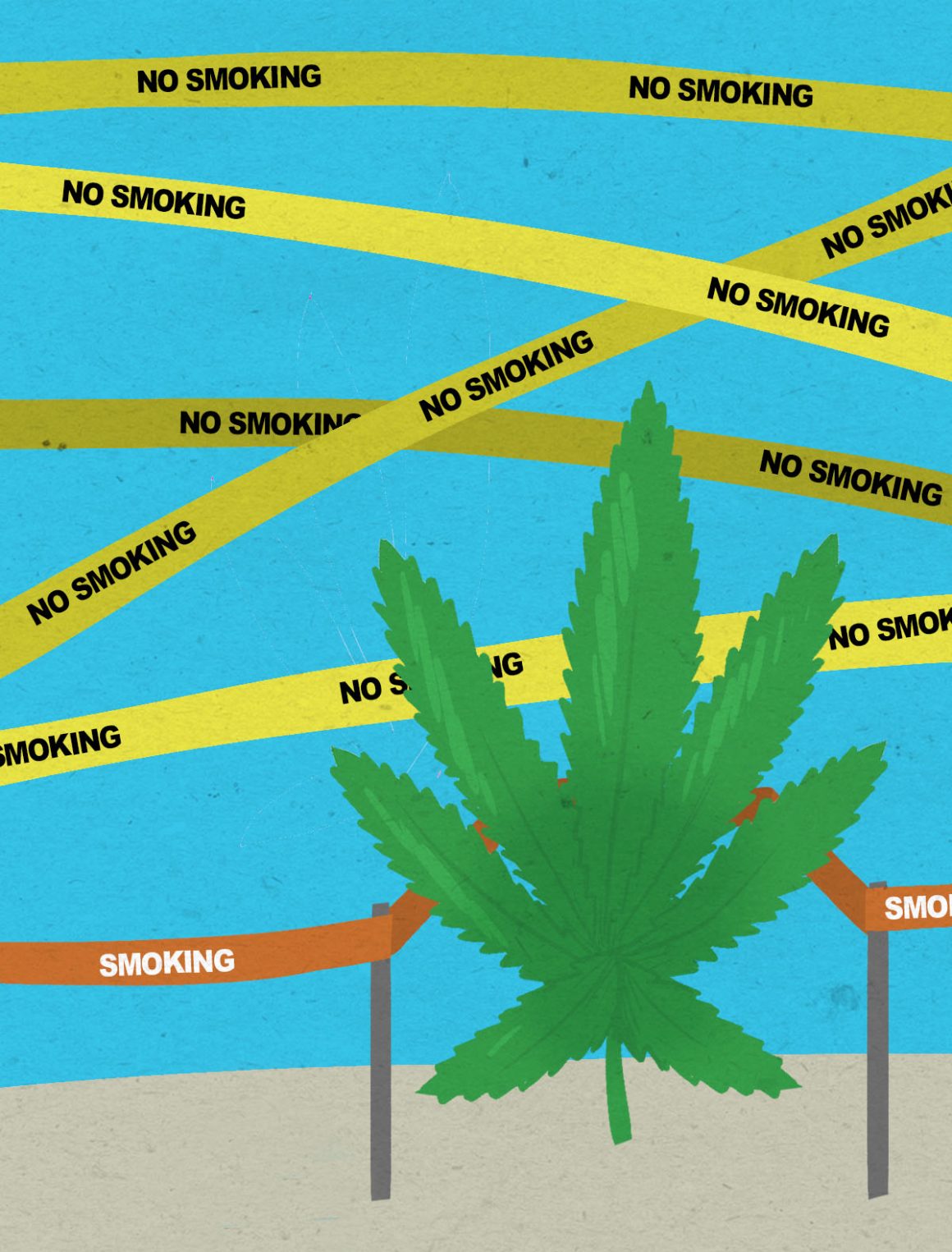
Calgary should rethink stifling weed bylaws
May 4, 2018 —
A lot of fuss has been made about the forthcoming legalization of recreational cannabis by the government of Canada. The way Justin Trudeau’s Liberal government pursued the substance’s legalization allows all three levels of government to make some decisions about legalization processes in their jurisdictions — and that’s to say nothing about institutions like the University of Calgary, which is working to implement its own regulations regarding on-campus cannabis use.
These discussions will likely be front and centre this summer as legalization inches closer. Though the originally proposed July 1 start date is now unattainable, Canadians could reasonably be lighting up legal joints by August or September. Calgary has already seen the start of much of this discussion in the form of City Council meetings surrounding potential bylaws regarding cannabis consumption. However, for Calgarians hoping to see rules around legalization take a form akin to those that dictate tobacco use, the proposed regulations are grossly disappointing.
The city’s proposed rules largely restrict weed consumption to users’ homes. Public cannabis use would only be allowed in specific, licensed locations, such as designated areas at music festivals. Those who violate the restrictions would face $50–100 fines. Medical cannabis would be exempt.
The province has already created rules regarding where pot can be consumed long before municipalities began their own discussions. These reasonable restrictions prohibit use within certain distances from hospitals, schools and places where children frequent. Use in places like public parks or sidewalks, however, is not limited by provincial legislation.
One of the unforeseen problems with a public smoking ban is that it assumes that all potential cannabis users have access to a private space where they can safely consume the substance. Many rental properties are non-smoking, so they restrict tenants from lighting up within their own living space. Many councillors, including Ward 14’s Peter Demong, dismissed this scenario as an edge case, despite over one-third of Calgarians being renters. And even if a small proportion of those find themselves without anywhere to legally consume cannabis, no one should be unable to engage in consumption of a legal substance due to their living circumstances.
The city’s regulations renters are disproportional when considering their socioeconomic and racial implications. A recent article by Mount Royal University professor Mohammed El Hazzouri points out that, according to 2011 data, 49 per cent of black Calgarians and 37 per cent of Latino Calgarians live in rental units, compared to less than 20 per cent of white Calgarians.
It’s clear that the proposed bylaws would disproportionately disadvantage visible minorities — the same groups that are currently disproportionately prosecuted for cannabis-related offenses by local police services. A recent Vice Canada investigation found that black and Indigenous communities were overrepresented in weed arrests by the Calgary Police Service in 2015 — that year, black and Indigenous populations made up 11 and nine per cent of weed arrests, respectively, while comprising four and three per cent of the population.
Legalization may end up actually increasing the number of pot-related infractions in the city because of public consumption and driving offenses. CPS police union president Les Kaminski told the council in April that the service’s funds and personnel are spread too thin to properly enforce the proposed cannabis bylaws. Now, Calgary has asked for more funding from the province to hire additional officers to deal with legalization. The process of making something legal should not result in heightened police services. Actions like this only serve to perpetuate the criminal perception and status of cannabis, something that legalization should aim to put an end to.
Even if an increased police presence is necessary, the potential economic benefits from weed’s legalization have been diminished by details in legislation. Weed bars — businesses where customers can consume cannabis — are outlawed under proposed bylaws. And zoning regulations restrict where dispensaries can operate, including not within a certain distance from another dispensary. These unreasonable limitations on consumption will negatively impact the city’s and province’s revenue from legalization, hurting their ability to spend on officers or other expenses.
Calgary’s proposed bylaws spark a convincing argument of why municipalities should not have the ability to implement sweeping legislation surrounding a federal initiative. That weed’s legal status may differ across the country — let alone across the province — is absurd. All Canadians deserve legislation that indiscriminately allows pot consumption. Unless City Council changes their stripes this summer, that won’t be the case in Calgary.
— Jason Herring, Gauntlet Editorial Board
